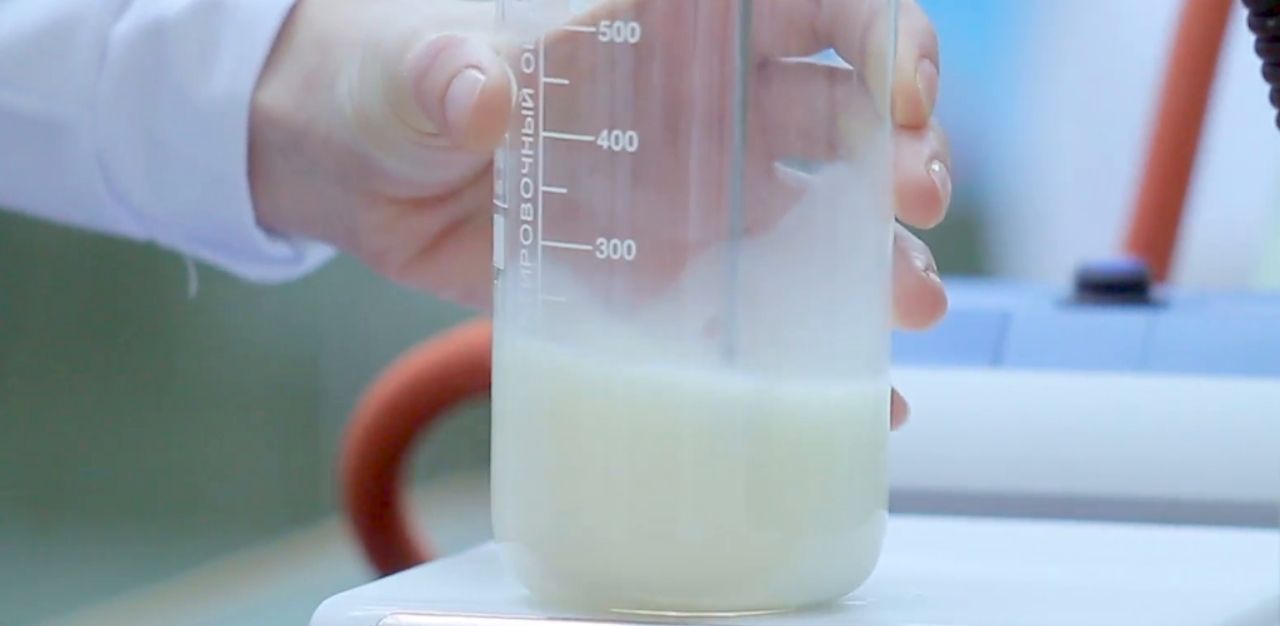As a mother would know, you’ll never have to watch your food as carefully as you’ll need to when you have a baby. The tiny tummies of babies have yet to grow, and so, their ability to digest complex foods is practically non-existent. Foods that we deem healthy and even ‘organic’ in our adulthood, like honey and cow’s milk, are big no-nos for babies, since they lack the nutrition necessary, and are indigestible by babies.

Among nature’s many life-giving miracles, a mother’s breast milk is able to do just that, providing the exact nourishment that babies need while being easily digestible. Enter cell-based breast milk, shattering the conventional, all-natural image of breast milk. According to Biomilq and TurtleTree, who are making this cell-based breast milk, it’s no different from real human breast milk.
First things first, why do we need cell-based breast milk?
The reality of breastfeeding is a bumpy ride for mothers. Often, breastfeeding doesn’t come naturally to mothers, and many are so exhausted from pregnancy that they are unable to produce breast milk. Other times, they may not have enough glandular tissue to support breastfeeding, or may even be dealing with pregnancy-induced insulin-resistance, stifling their ability to breastfeed.

And physical barriers aren’t even the half of it. Mothers may also face psychological, social, and even institutional hindrances to milk production. A lack of paid leave and other common problems make breastfeeding a difficult line to teeter tot on, by no fault of mothers. Mothers who have HIV or are on cancer medication also cannot breastfeed their babies. The situation is not at all uncommon, with 12 to 15 per cent of women experiencing disrupted lactation – that’s one in eight women.
The devastating and unnecessary idea that breastfeeding is something that only “good parents” can do is one that has long been thrown out of the window. And so, breast milk that has been made in a lab can help to supplement a fundamental need for an increased supply of breast milk for babies’ consumption. It can also help take a lot of ‘toxic’ social pressure out of pregnancy and childbirth on mothers, who are prone to physical exhaustion and mental exhaustion.
“Yes, we are pioneering next-generation lactation science. But, more than that, we’re offering support for new parents”, said Michelle Egger, CEO of Biomilq.
Studies have also found that women who aren’t breastfeeding have higher levels of depressive symptoms than women who are breastfeeding. With post-partum depression affecting 13 per cent to 19 per cent of women who have recently given birth, any effort to reduce the statistics are undoubtedly precious. Past-partum depression can result in life-threatening harm to both mothers and their infants.
Cell-based breast milk is real human breast milk.
Turtletree from Singapore and Biomilq from the United States have created cell-based milk by using real human cells. Biomilq does this by using live mammary epithelial cells to coax the cells into multiplying in a bioreactor aided by a nutrient-dense liquid.
The result contains the same nutritious values that human breast milk contains, including oligosaccharides, fats and carbohydrates. Personalisation is also apparently an option that is available.
According to Biomilq, they can do this by allowing pregnant moms to take a biopsy of cells, allowing them to reproduce their milk to have a constant supply of milk for their babies. This way, mothers will not have to worry about their milk production shutting down from a lack of energy.
Biotechnology company TurtleTree in Singapore produces milk in a similar way, using cells to “nourish our people and protect our planet in the most sustainable way possible”. The company seeks to reinvent the way that food systems operate, and to grant more food security to parents. The company plans to start selling cell-based human milk this year, in 2021.
The cellular similarity of cell-based human milk to real human milk also makes it a good alternative to formula milk. Not all formula milk may sit well with an infant’s tummy, and it can take a long and expensive process to find one that fits.
“Many children have food sensitivities to the formulas as they are not the same as breast milk, so as cultured milk contains the two components of breast milk (lactose and casein), it looks promising,” said American obstetrician-gynaecologist Tara Scott, who also says that breastfeeding is one of the hardest things that she has done.
There are some limitations.
For the most part, cell-based human milk contains the nutrition that babies need, and the same make-up of human breast milk. However, it would be unable to factor in the miraculous way that human milk changes by the day. Antibodies get passed from a mothers’ bodies to their baby, adapting to suit the needs of the child daily.
“Breast milk is unique to each parent and baby. It changes from day to day to meet the child’s needs. Because of the ever-changing and specificity of breast milk for each day, it’s unlikely that any formula will truly replace breast milk,” said lactation expert Chrisie Rosenthal.
But where alternatives for parent are concerned, they are limited to formula milk and getting milk from other mothers. However, unlike the virus-screened milk at milk banks, sharing or buying milk in private interactions means the assessment of risk is upon parents.
Due to the technologically-intensive stages cell-based breast milk go through, this milk might also be expensive until it is able to penetrate consumer markets and be produced at a much larger scale.
TurtleTree hopes to gradually reduce its developmental costs in order to make the cell-based milk more affordable to mothers. According to TurtleTree, it’s a trend that has been observed with many cell-based products, and is a norm in the market.

“Our early products could be at a more premium price point. However, as the technology matures and the ecosystem around the technology develops, we are confident the cost of production will drop considerably,” said Harith Bahren, a chemist and business analyst for TurtleTree.
The customisability of cell-based milk might also mean the possibility of the product becoming a cult-product, with premiums on fortified milk being excruciatingly high and available only to caretakers within a higher income bracket.
So, would you feed this to your baby?
As the consumer market opens up to cell-based products, some remain sceptical – this is fully expected given the delicate nature of infanthood. As more information becomes publicly available on cell-based milk, perhaps mothers and consumers will be more receptive.
A mom of eight, Agnes Nemes-Chow often donates her breast milk to the Breastfeeding Mother’s Support Group in Singapore.
“My first preference would be to use donor breast milk from other breastfeeding mothers. Formula and, in my understanding, cell-based breast milk too, don’t have antibodies and microbes that support the baby’s gut health the same way as real breast milk does. I would need to see more information about the safety and health impact of cell-based milk before I buy it,” said Nemes-Chow.
Join the conversations on THG’s Facebook and Instagram, and get the latest updates via Telegram.




























